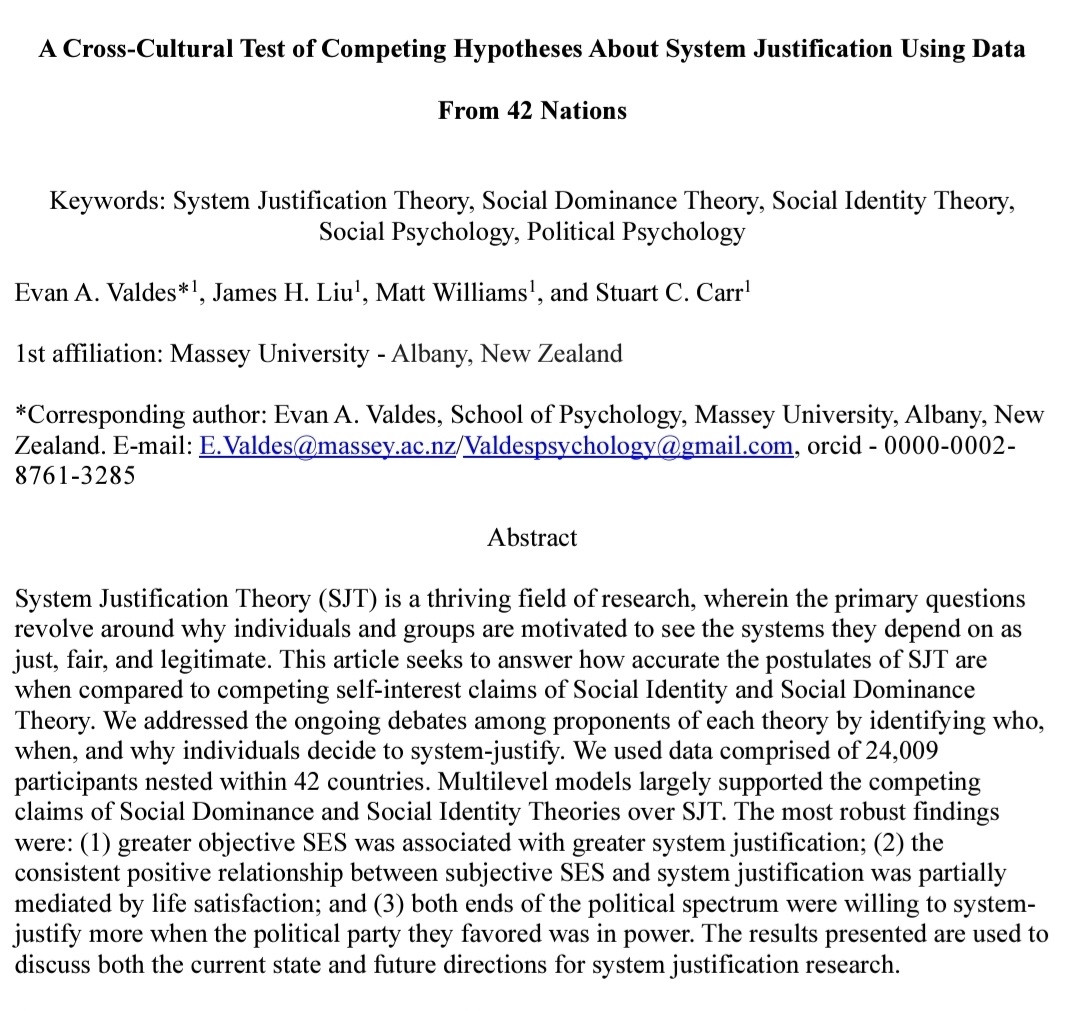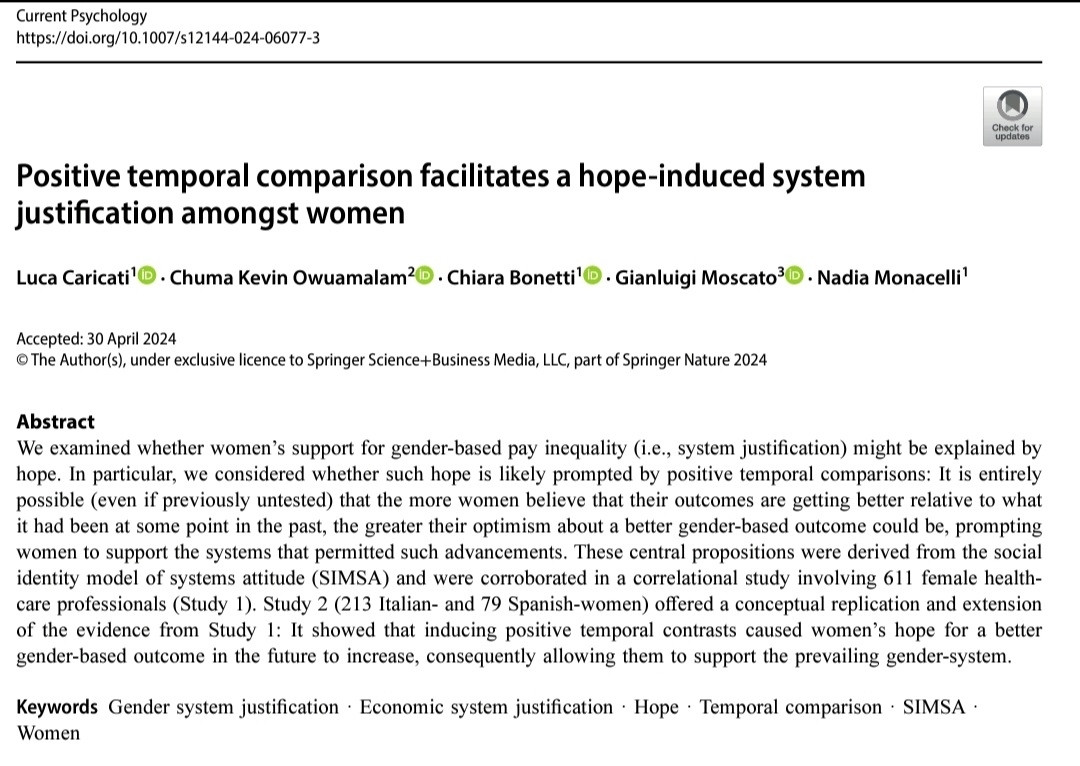New cross-cultural study (N = 24,009; 42 countries) finds more support for social identity theory and social dominance theory than for system justification theory. By @evanavaldes.bsky.social@matthewmatix.bsky.socialwww.researchgate.net/publication/...#SocialPsyc#PolPsych 🧪

This might be the best current overview for polpsych. onlinelibrary.wiley.com/doi/abs/10.1...

The concept of ethnocentrism was introduced by Gumplowicz in the 1870s, popularized by Sumner in the 1900s, and first investigated psychometrically by Adorno and colleagues in the 1940s. It has becom....
I may regret this, but I also have no discussant/chair responsibilities, so if any panels in polpsych / public opinion need support, happy to help.
Warily broaching polpsych of ID threat for some Jewish Americans. Want Israel to be essentially good, empower/embody Jews, provide safety. Israel is self-destructing (& betraying) that cultivated image, incl w/ them, but US Jews are still hurt when allies decry it (& ofc many don't feel conflicted).
A hope explanation of system justification The more women believe that their outcomes are getting better in a status system, the more they support that system. doi.org/10.1007/s121...#SocialPsyc#PolPsych 🧪

It's polpsych heavy.
ehemalige kommilitoninnen sind journalistinnen arbeiten bei der pisa studie oder promovieren in polpsych und ich bin in fucking rastatt gelandet ahahahha in fuckint rastatt
@profpaulpoast.bsky.socialbsky.app/profile/prof...
IR Book of the Week! "Right and Wronged in International Relations" by Brian Rathbun. Far from being an amoral realm, moral sentiment is the basis for many actions in the international system. This includes using violence to "right" a "wrong". www.amazon.com/Right-Wronge...

Amazon.com: Right and Wronged in International Relations: Evolutionary Ethics, Moral Revolutions, and the Nature of Power Politics (Cambridge Studies in International Relations): 9781009344715: Rathbu...